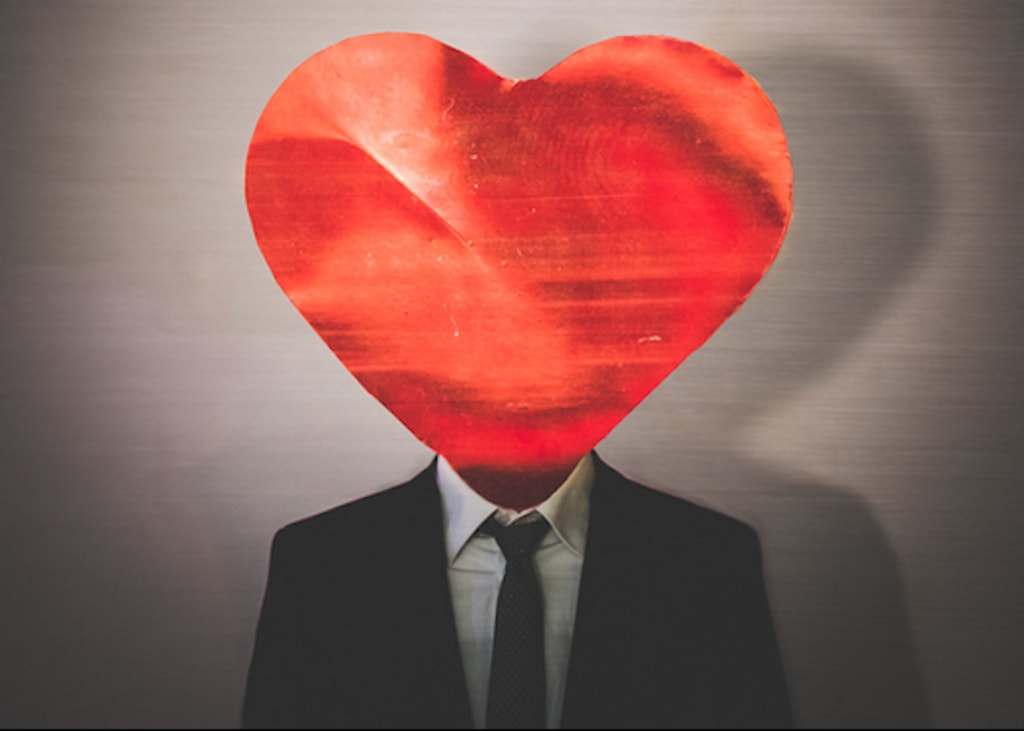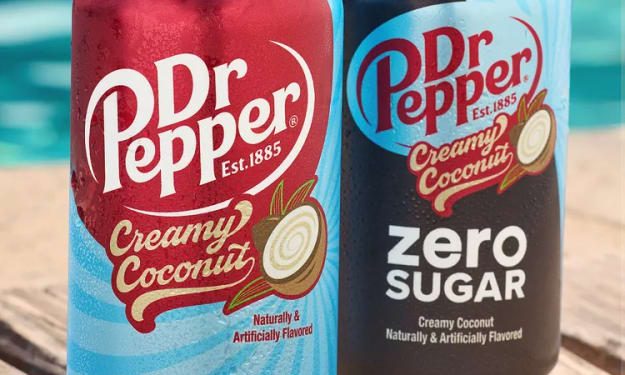If You're Wondering Why You Suck at Dating, This Is Probably Why
When you can admit to yourself that you have finally made too many mistakes to ignore, it's likely because of these core reasons.

The truth is: not everyone wants to flit from one person to the next for the rest of their lives. You're at that stage where you want to get serious, but every relationship you put effort into still seems to fizzle out after a certain period of time. You wonder if it's something you said, or something you did since every relationship ends up the same way, and you eventually conclude that it's probably a weird combination of both of those things. Coincidence? Possibly. Is there a lesson that can be learned here? Absolutely.
From one failed relationship to the next, here is what I've learned about building a lasting relationship from screwing them up.
Jealousy Say More About You Than It Does About Them
I remember in high school when I dated a guy one year my senior. I remember feeling like I was really doing quite well for dating 'older than my age' after having only dated a few guys in my year, and on top of that I sincerely felt like I had all my ducks in order: I had a few hobbies and was part of a bunch of clubs and things were going really well between the two of us. He ended up getting a part in the annual school play and on the night of the show finale, there was a cast and crew after party we attended together.
All my memories from that night boil down to the undeniable bubble of jealousy I felt when I constantly saw him hanging around with an ex at that party. At the time I felt like it was only right to let him know that she made me feel uncomfortable and that I didn't want him spending time with her.
He promptly broke up with me the next day.
Looking back at it now, I know it was the right thing for him to do. The truth was: my own jealousy highlighted my insecurities that I had about my relationship with him, and he really hadn't done anything wrong at all. He chatted with her, danced with her, didn't cheat and didn't even flirt with her. He hadn't done anything inappropriate and yet I let my own sadness and uncomfortable feelings dictate who he could be friends with. I was trying to control him by forcefully ejecting the things that my mind was telling me was threatening my relationship.
Feeling jealous doesn't automatically mean that your point of view is correct. Maybe it was a trust issue, insecurities, or maybe I was just trying to be too controlling. Rather than making the other person change, I should have examined my own jealousy to determine what the real underlying issue was.
In the same vein, jealousy can be a great way to figure out where you might be feeling threatened in a relationship. I would be less jealous about my boyfriend getting excited about a new movie than I would be if he were excited about going for dinner with a pretty lady friend he used to work with. Even if one day you find out that your worries really were true (because sometimes they can be), jealousy can help you figure out what to look for in your next relationship, or what you might need to change about yourself before you get into the next one.
Be The Person They Want To Be With
I know this one might sound a bit like trying to mold yourself into being someone your partner wants to be with, and that's sort of exactly what I'm saying. When we're young, we are taught to imagine what our ideal partner would look like: someone who is caring, smart, likes to go to the movies and makes us laugh. When we find that person, many of us tend to immediately focus on them and what they bring to the table and not what we bring to the table.
So, why should your partner be dating you?
When I was younger, I thought of myself as someone who cared more about others than I did myself. I was smart, funny, and any guy I had an interest in would obviously like to date me. It was when I started to date some of these guys and they started breaking up with me that I realized I was seeing more in them than I was seeing in myself.
When we are looking for someone to be in a relationship with, it is really easy to see the great things about the people we want to date compared to the traits that we take on for ourselves. In my youth I was clingy, and probably a little bit possessive. I read into things I probably shouldn't have. Even then there are a countless number of things that someone could turn me down for: I wasn't their type. They just didn't have those feelings. I was too nerdy—the point is that even if I thought we would be great together didn't mean that he necessarily thought we would be great together.
Now here's the real kicker: if you want to get in on a date, be someone dateable. What if you decided you could learn how to dress better? Pick up an interesting hobby? Use deodorant every once in a while? Doing any or all of these things and more will ultimately boost your own confidence and instead of only being able to offer a potential partner the fact that you're not a complete mess, they'll be drawn to the great and exciting things about you that you would want to date yourself!
The most important thing to remember is this: not everyone is going to be attracted to you, whether you are someone you would date or not. Some people will appeal to you and some people won't, and that same concept works the other way around too (go figure, huh). But it doesn't hurt for you to take a minute to look at yourself to make sure you would be happy dating YOU, too.
'Communication is Key' Is Not Just A Cliche Phrase
People in general tend to screw this one up a lot. It's one of the most common relationship clues, and still we can't help but converge into ourselves when it comes to talking about things that we may not necessarily be very comfortable talking about.
I dated a guy a number of years back and our entire relationship was just a series of yelling and screaming at one another about our problems and not truly honing in on trying to have a real conversation about what was bothering us. Eventually, I started seeing these petty arguments as something I didn't want happening between us, and slowly I began to internalize my issues and keeping my problems to myself. It was meant to be my way of showing him that I could rein in my emotions and deal with them myself when in actuality they were just eating away at me from the inside. This eventually led to more than one occasion where one of us would break down and start a fight over a problem that neither of us had any idea was an issue in the first place. I ended up staying with the him much longer than I should have. Neither of us wanted to give up, but it was obvious to us and everyone around us that it wasn’t working.
Keeping my problems to myself not only isolated me from others but it also kept me from trying to find solutions for them. Once I learned how to take some time to fully digest what it was that was bothering me instead of lashing out emotionally, I was able to look at the bigger picture and see my problems as something to discuss rather than something to fight about.
Everyone says it but it really is true: not talking about a problem doesn't make the problem go away. In fact, the more we internalize how we're feeling the worse they're likely going to get. In any relationship, whether it is a friendship, romance, or even your relationship with a family member, being able to express how you're feeling and to tackle these difficult conversations together is ultimately how the strongest relationships come to life. It may not be the easiest or most comfortable conversations to have, and they're certainly much easier said than done. But these conversations will be much more beneficial to your relationship in the long run than they will be if you let them stew inside you instead.
Admittedly, being honest about my problems did lead to more broken relationships than solidified ones. I kept my problems to myself because I was afraid of rejection. But once I opened up and finally had those difficult conversations, I began to recognize just how much happier being around the people who stuck around, was. Allowing myself to openly acknowledge my problems gave me the freedom to say “This isn’t working,” and find a proper solution for it.
Learning to Accept Rejection
Think of the last romantic comedy you saw. What happened? How did the guy eventually get the girl in the end? Most romantic comedies I know show the guy pining for the girl, then the girl rejecting him, only for the guy to come back (sometimes even over and over again) asking a second time for the girl to give him a chance before she eventually gives in and they both live happily ever after.
And yet in real life, this isn't exactly how rejection really works.
Since there were plenty of reasons in my mind for a man to date me, I never really saw rejection as an option for much of my earlier years. No one ever gets a status report on how or why they were rejected, they just know that it happened. I always thought, well if I just go back and ask again, maybe bring a more convincing story with me this time around, he'll have no problem reconsidering.
What eventually came from this is that I never really moved on. Every time I got into a relationship that I really liked and a guy would push me away, I'd try to find every reason for him to take me back instead of accepting that we were just not compatible anymore. The biggest issue with this mindset is that it keeps the other person from their right to say no. Even if he made it crystal clear he was no longer interested, I always had a hard time accepting it whereas on the other hand this sort of behavior is a HUGE red flag: if a man continues to pursue a woman even after she has said no, is that not a sign that there is a major problem there? If someone is not willing to accept 'no' for an answer in terms of a simple relationship, what else will they not accept 'no' for?
No one has the right to justify someone's reason for rejecting someone else, and neither is it shameful or weak to accept rejection for what it is: a 'no'. When you finally accept that rejection is natural and just a part of dating that will never truly make you a loser, you'll be free to explore other options. And while you wait for that one person who has said no to you to say yes, your entire happiness hangs in that waiting balance and that can be a really unhealthy place to be. It's not until you can accept your own rejection that you are able to pursue your own happiness elsewhere.
I am really happy to say that today I am in a strong, stable relationship that couldn't make me happier. Nowadays, my biggest worry is about whether I did enough laundry to us through the next week! I still screw up every once in a while, but I have a lot less problems than I used to.
Once upon a time I thought I was a catch. Now, I know all the places that I need improvement. Of the two, I can see now which one is real and which one is far from it, and surely that's a step in the right direction for all of us.
About the Creator
Delilah Jayde
You can follow her on Facebook at: www.facebook.com/iamdelilahjayde






Comments
There are no comments for this story
Be the first to respond and start the conversation.